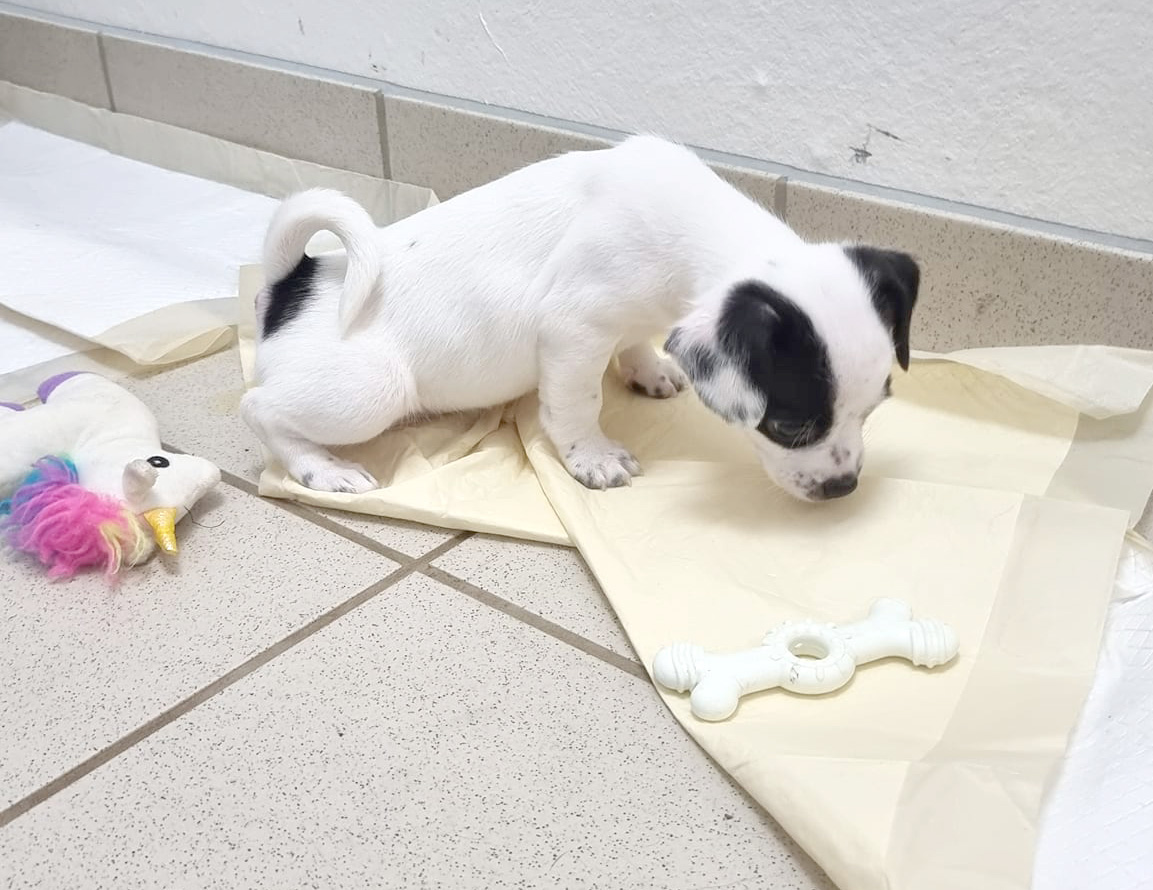New cat
How to set up your home to help your new cat settle in quickly
Cats, Adopters, Cat behaviour, Kitten

When they are in a litter their mum will carry them away from their sleeping area to toilet, and you will often find puppies will themselves attempt to toilet away from where they eat or sleep. In a home environment it can be confusing for a puppy to know where they are supposed to toilet, and where they are not.
It is important to understand that dog never toilet indoors to spite an owner, and if we don’t set a puppy up for success with toilet training then the mistakes are our fault, not theirs.
The first rule of toilet training is constant supervision, if you are otherwise occupied then puppy should be in its crate or a little den room such as a utility room where you don’t mind a toilet happening.
Puppies have tiny bladders, so give them regular toilet breaks every 30 minutes at first, and then building up the time between toilet sessions as puppy grows older and starts to learn to ask to go to the toilet.
When puppy is in the process of toileting you can add a word such as ‘toilet’ or ‘go wee’, over time puppy will begin to associate this with the act of toileting, which will be useful in future on cold wet winter mornings or if you are in a rush!
Praise puppy enthusiastically for toileting, as soon as they have finished toileting tell them what a good dog they are and then let them have a further explore of the garden – owners often make the mistake of taking puppy back indoors straight after toileting which can, over time, result in a dog holding their toileting in to give them a longer session in the garden!
If your puppy shows these signs, offer them the chance to go to the toilet outside.
It's important to teach your dog to let you know when they need to go out – they won't learn to do this if your back door is permanently open. You can teach your dog that sitting by the back door means you come and open the door; this will increase the likelihood of them offering this behaviour in future when they need to go out.
Remember that it was an accident - they needed the toilet and couldn’t hold it in and so toileted. It’s never a spiteful attack on you as the owner for leaving them unattended. So next encourage puppy into the garden to see if they need a further toilet, whilst puppy is outside, you can thoroughly clean the toileting up and use an odour neutraliser spray over the top to get rid of the base scent or urine or faeces.
» DOWNLOAD this as a printable page
Read more articles on puppy essentials:
» Puppy essentials: The first days and nights